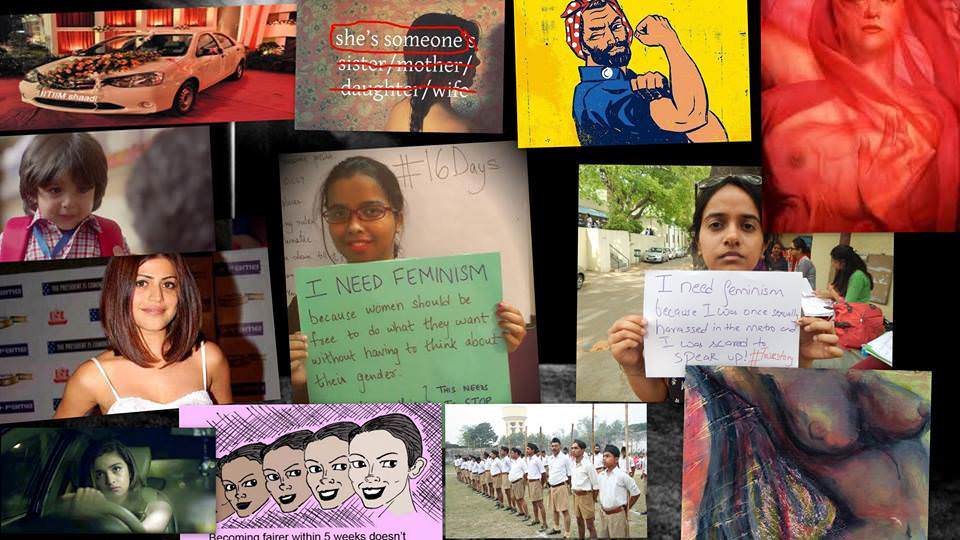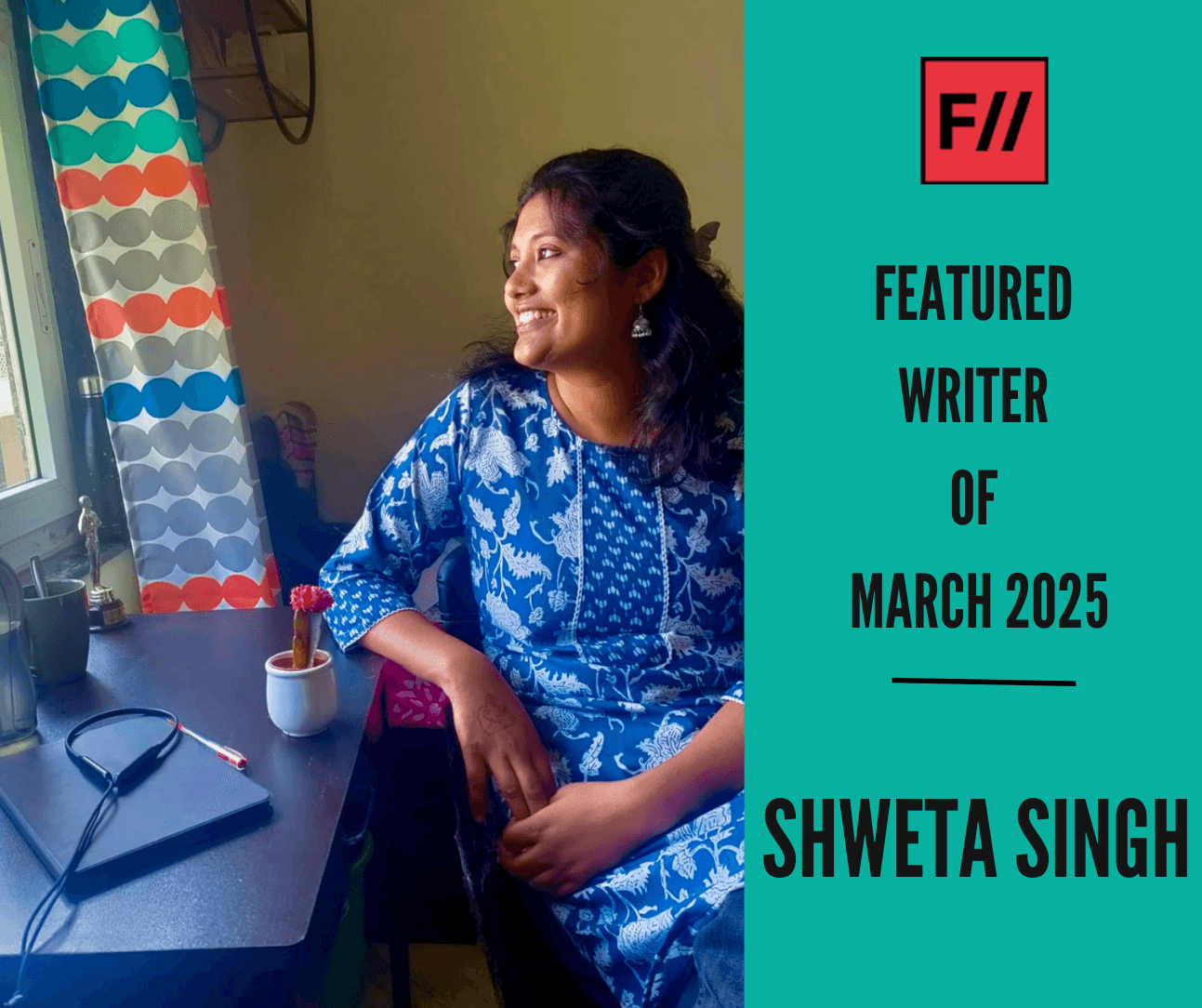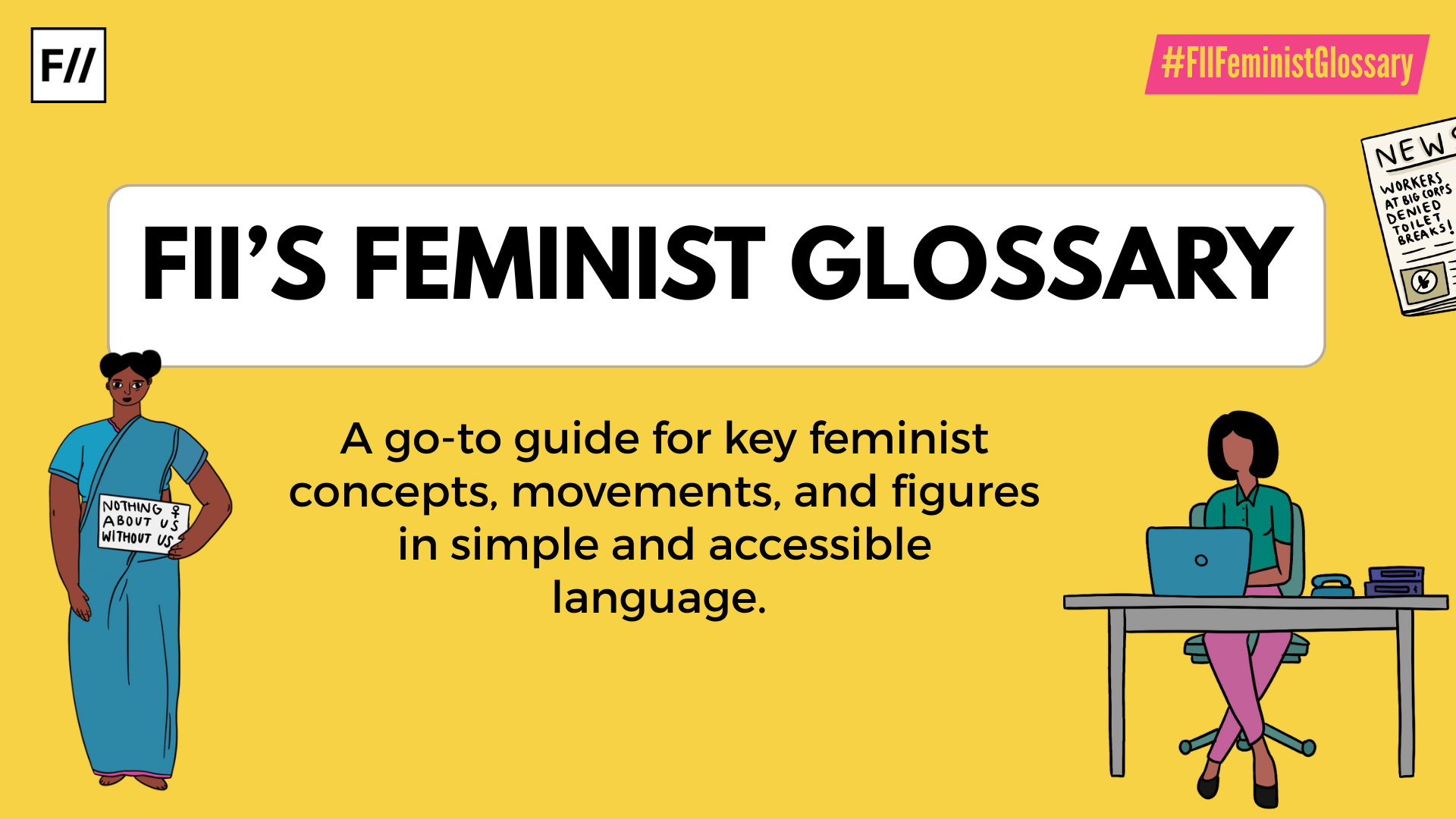The year has definitely been a roller-coaster ride. We finally went live! After an year of educating and agitating our members on various social media platforms and holding campaigns in universities in Delhi, we finally build a home for ourselves and go live.
The transition from a mere Facebook page and Twitter account to a #INeedFeminism campaign to a now finally a movement is complete. The revolution started with YOU. We started in August 2014 and in just five months we published 75 stories from about 40 contributors. That’s quite a start! We’re grateful to each and every one of our contributors who made this possible. Here are 14 stories that were best loved by YOU.
1. Breasts by Swetha Dandapani
“Suddenly I was reminded of them everyday,
Because unlike the clitoris which provides immense pleasure, or the vagina which has its own monologue and is hidden deep inside,
or the penis which is wielded with power or the testicles which are wrongly associated with courage despite the levels of sensitivity associated with it,
Breasts are out in the open. Available to be groped, touched, pinched and caressed.”
2. An Open Letter To The Founder Of IITIIMshaadi.com by Japleen Pasricha
“I stumbled upon a Facebook post which said now men from IIT and IIM have a place to find their “soul mates”. I clicked on it and whoa, was I fumbled? Your extremely fresh idea to build a matrimonial website based on educational qualifications than evils like caste, class, race etc is damn progressive, I must say. Even trivialities like common interests and hobbies and compatibility didn’t find a meager mention because as the tagline of your website goes Alma Mater Matters. Well, I must congratulate you, Sir. You have solved that mystery which even Chetan Bhagat with six books down couldn’t.”
3. Woman, Thy Name Is Temptation! by Gita Negi
“You shouldn’t have smiled, you shouldn’t have spoken
You shouldn’t have dressed, you shouldn’t have been.
For the sake of his delicate sanity.”
4. 26 Simple Things Men Can Do For Feminism by Swetha Dandapani
“Following Emma Watson’s #HeForShe campaign, here comes our own list. What might seem like supremely simple things actually is where a LOT of women see severe discrimination. So, give these a shot, maybe?”
5. Endogamous Love: On Love Jihad & Marriages In India by Abul Kalam Azad
“How many Brahmins fall in love with non- Brahmins? Banias’ with non-Banias’? Hindus with non-Hindus’? Upper-class folks with middle/lower class folks? Not many, I presume. Why is love so endogamous? “Love doesn’t see caste, class, creed , religion…” The dead bollywood fan inside me shrieks. But, it clearly does, doesn’t it? And how is this endogamous love radically different from an arranged marriage except an induced illusion of agency in such love affairs- a complacency that prevents an interrogation into the highly inhibited spaces of interaction- who we are allowed to talk to, to play with, and even, fall in love with?”
6. Not fair, yet lovely: On being a dark-skinned woman in India by Drishya Nair
“I did not know I was dark-skinned until the age of six, when my little cousin expressed her clear disinterest in playing with me because I was Kali (black in Hindi). I still remember being confused, annoyed, agitated and feeling helpless when my baby sister, whom I loved and adored, pointed out something in me which I had no control over and did not even understand at that age.”
7. Modesty of Dress and Indian Culture by Suchi Govindarajan
“And what is this abomination called shorts? Is it really necessary that Indian boys need to play sports in which they have to show their legs? I think they can just stick to games like chess and cricket (it’s not like they are doing well in other sports anyway). And swimming is another problem. We have a long tradition of bathing with clothes, why should they wear little Speedos just for this? I think it is just an excuse to show off their bodies.”
8. ‘Going Home’– #Fauxempowerment? On Vikas Bahl’s New Short Film & Why It Is Problematic by Indian Male Feminist
“To begin with – the initial eerie background music and general atmosphere of the video in itself feels inappropriate. However, the video falls way short even if you were to ignore the background music and general atmosphere, if you were to accuse the creepy stares, the guy near the end of it trying to kiss her hand while she awkwardly and forcefully withdraws her hand, and skirt shots in the video are just poorly thought to say the least. So in the end you have a video with a shoddily conveyed “be the ‘nice guys’ ” message.”
9. BOYS DON’T CRY: The gender guidelines and empowerment efforts by Himadri Barman
“The disappointment arises when I see, to revoke the “boys don’t cry” genderism, birth of a new genderism is taking place. At the same time, aren’t we seeding a masculine ego or chauvinism? Should a boy respect girls because he is a boy, or because he wants to be a sensible human being? What is wrong in simply stating: Boys can cry too?”
10. I Was Molested In The Delhi Metro And I Was Scared To Speak Up! by Japleen Pasricha
“For days, months and years I was angry, very angry. I was not angry at that man, call me a pessimist or a feminazi but I expect this from most of the men around. I was not a feminist activist (something that I associate with and call myself today) back then, but I had always been a rebellious kid and a strong-headed girl. The fact that I endured this quietly and didn’t do anything haunted me for years. I kept thinking of various ways how I could have acted at that time, how I could have raised my voice, how I could have broken the silence. But I didn’t. I was harsh on myself, I programmed myself not to talk to strangers ever, be on a constant alert, make a pissed off expression whilst walking past a group of men on the street, not to trust men, always expect the worst and many other similar defensive and protective measures. I didn’t forgive myself.”
11. My Burqa Didn’t Stop Them From Sexually Violating Me by Asra Ghouse
“I hate that I remember all of this. I’m not even going to begin writing about the eve teasing and cat-calling. Don’t tell me I was lucky to escape without anything worse happening. NO! I am not lucky. This shouldn’t be happening in the first place to consider our fates as lucky or unlucky. It’s not a fate thing, it’s the man/offender’s problem to sexually gratify himself, assert his dominance over a woman. It is not MY problem that it happened. It is HIS problem that he did it.”
12. Freedom At Midnight by Suchi Govindarajan
“And these are only the stories I remember.
It happened so often that we forgot to keep count.
So many men on the bus with their fingers poised
Too many men with their erections poised.
Men taunt us on the streets open and unashamed
Like we are dogs straying into sacred places.
1947, you say? “India awoke to life and freedom.”
Indian women are wide-eyed, awake, and still waiting.”
13. Fight Misogyny, Don’t Feed It: In Response to Shenaz Treasurywala’s ‘Open Letter’ by Prithvi Acharya
“You don’t need saving; you need equality and justice. And when it comes to this issue, all of us – men, women, cricketers, and software engineers – are powerful, and responsible. I’m most grateful, Shenaz, that you have taken it upon yourself to fight for women’s safety, and I pray that you will continue to do so. Just make sure, the next time you write an open letter, that you use it to fight misogyny, not feed it.”
14. The Language Of Association: Maa-Behen by Adishi Gupta
“An Indian woman’s life is never seen as one independent of the men in her life; her father, her brothers, her spouse and in some worst case scenarios, even her uncles. From taking the last name of her father at the time of birth until another man enters her life and gives her the last name of his family, her name is also a matter of great importance and ownership for men, completely turning a deaf ear to her individuality.”
If you’ve loved reading Feminism In India, we’d be obliged if you could take the time to share this post – whether on social media, or via email, so that we can also get the word out to others who may not have come across us yet!
We wish you all the best for the new year and hope to stay connected with you as well grow with other new readers.
About the author(s)
Feminism In India is an award-winning digital intersectional feminist media organisation to learn, educate and develop a feminist sensibility and unravel the F-word among the youth in India.




